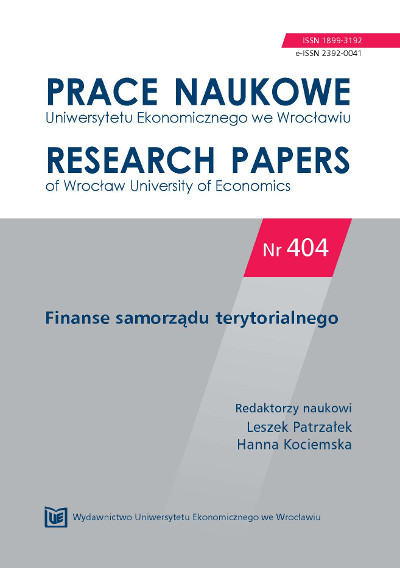Dylematy funkcjonowania społeczeństwa obywatelskiego w Polsce.
Dilemmas of civil society in Poland
Author(s): Katarzyna Maj-WaśniowskaSubject(s): National Economy, Micro-Economics, Civil Society
Published by: Wydawnictwo Uniwersytetu Ekonomicznego we Wrocławiu
Keywords: civil society; local government units; indicators of public participation; voter turnout; non-goernmental organisations
Summary/Abstract: Civil Society is an idea that is often put forward today both in Poland and in Europe. What is more, it can be said that it has come into everyday use. An important element of dissemination of civil society is the development of local government units. In this article, the author analyses the state of civil society in Poland after 1989. She adopts the broad meaning of the term “civil society” and presents a variety of activities and institutions that make up civil society. The author describes and evaluates the condition of Polish civil society based on three theoretical indicators (aspects): institutional, formal-legal and normative. In the institutional aspect, the author evaluates Polish civil society from the following perspectives: institutionalised social activity and resources of the third sector. Social capital created in Poland is diagnosed in the normative aspect. Civic attitudes – chiefly voter turnout and referendum participation – are evaluated in the formal-legal aspect. This wide framework enables the author to present the state of civil society without concentrating solely on the third sector. Generally, the analysis of civil society in Poland twenty five years after the transition does not give reason for optimism; this is true of all three aspects. Low voter turnout, low interest in public affairs, low level of participation in various types of organisations and institutions, and the small amount of generated social capital, attest to the weakness of Polish civil society. The fundamental barriers of the development of civil society are: historical events associated with the memory of the communist regime, widespread political life, which is also present in local governments. The most important and also the most difficult to change are the barriers at the level of consciousness of individuals and barriers to the formation of social capital. In contrast to the obstacles of organizational and legal nature, the biggest challenge will be a change of mentality. Overcoming such phenomena as: the deficit of social trust, the lack of feeling responsible for the situation in the country, or even the local community, the lack of faith in the efficacy of civic activities requires a lot of time.
Journal: Prace Naukowe Uniwersytetu Ekonomicznego we Wrocławiu
- Issue Year: 2015
- Issue No: 404
- Page Range: 170-189
- Page Count: 20
- Language: Polish

